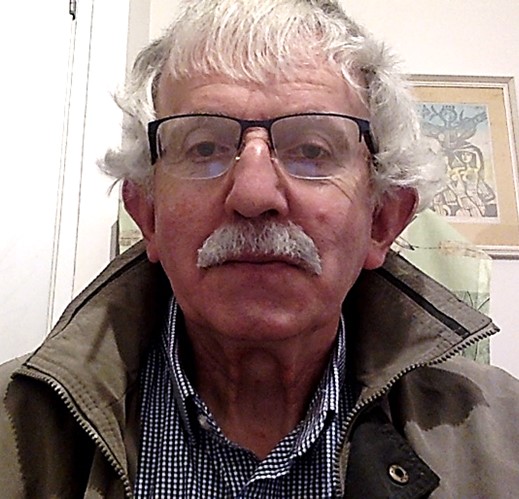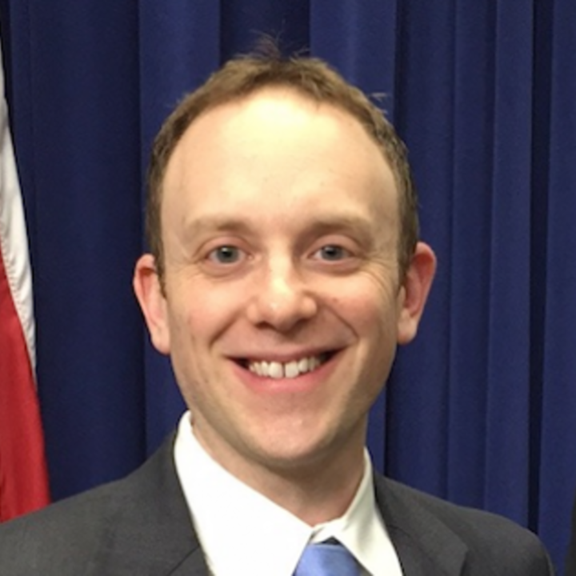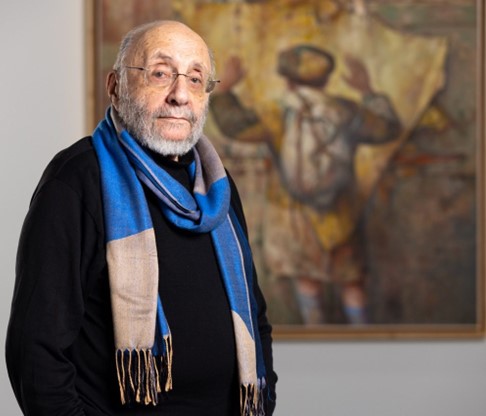Conference Program
Thursday 9 October Keynote
The Orv Menard Lectures: Special Keynote Speakers
Barbara Weitz Community Engagement Center Rooms 230/231
1:45 – 2:45 PM
John Minahane, Independent Scholar
Title: Poets Thinking Across Cultures in 14th Century Ireland: Gofraidh Fionn Ó Dálaigh and Gerald fitzMaurice
Time | Location: TBA

This presentation reviews a strange and risky relationship, expressed in poetry, of two 14th century Irishmen. One was the outstanding file (professional poet) in the country; the other was an earl, an important official of the English government in Ireland. The master-poet, Gofraidh Fionn Ó Dálaigh, and the earl, Gerald fitzMaurice (called Gearóid Iarla in Irish), conducted their relationship in the Irish language. Gofraidh engages with Gearóid in a long poem, arguing first on the basis of law. The earl should take responsibility and give compensation for the actions of a subordinate who has burned the poet’s corn and sought to kill him. Gearóid has the power to decide arbitrarily; Gofraidh, however, argues that he should voluntarily act in accordance with Irish law (the so-called ‘Brehon law’). And besides, there are the claims of many years’ friendship...
While no direct reply from Gearóid survives, a collection of 30 poems in Irish attributed to him may be seen as addressing issues that Gofraidh has raised. Gearóid Iarla frankly explains why he attacks the Gaelic Irish, even though they are his friends. He comments cheerfully on aspects of his imprisonment (lasting about a year) after capture by O’Brien, prince of Thomond. He has love poems to various women, and two splendid poems in praise of Irish rivers. Remarkably, he has poems to members of a great Gaelic rival kindred, the MacCarthys, whom he seems to relate to as poet to patrons. The question arises whether Gearóid’s poetry leaves room for his role as earl: was it possible to wear these two hats in such a way? This and other questions of the Gofraidh-Gearóid relationship, taken broadly, will be discussed in the paper.
Friday 10 October Keynote
Ari Kohen, Professor of Political Science and Schlesinger Professor of Social Justice
Director, Norman and Bernice Harris Center for Judaic Studies
Title: “Every Age Has Its Own Fascism”: How Contemporary Political Speech Deals with Extremist Ideologies
Time | Location: TBA

Extremist nationalist groups have worked to subvert the democratic process, built a base of support through the promotion of xenophobia and bigotry, and regularly promote all manner of conspiracy theories. Nonetheless, there is a reticence to label them as fascists or to suggest that they are promoting a fascistic ideology, in part because when we hear the term “fascism” or “fascist” today, it often triggers a certain reaction—some will say things like, “Oh, what an exaggeration! Where are the brown shirts? Where are the mass arrests? Where are the concentration camps?” To be sure, fascism is difficult to define as a universal concept. It molds itself to the circumstances of time and society. And the frequent and careless use of this term in political debates runs the risk of diluting its meaning. When a term is reduced to nothing more than an insult, it loses its significance and analytical value. As George Orwell put it in his 1944 essay “What is Fascism?”: “All one can do for the moment is to use the word with a certain amount of circumspection and not, as is usually done, degrade it to the level of a swearword.” Clear distinctions and definitions are vital; they provide context and prevent the term from becoming vague, applicable to everything yet signifying nothing.
Saturday 11 October Keynote
Samuel Bak, Visual Artist and Holocaust Survivor
Title: “Acknowledging the Past/Envisioning the Future: A Conversation with Samuel Bak”
Time | Location: 9:00 – 11:00 AM at the Samuel Bak Museum and Learning Center

This year in celebration of the ESC’s 50th anniversary, we have a grand finale event on Saturday morning.
Samuel Bak, internationally renowned artist and Holocaust Survivor, will be joining us live via Zoom from his home in Boston, Massachusetts to discuss his life and work with the Bak Museum Executive Director, Hilary Nather-Detisch. This will be followed by a private guided tour of the current exhibit. Since its inception almost 10 years ago, many ESC participants have expressed interest in visiting the Museum and Learning Center but have never been able to work it into their time here in Omaha. This year is your chance. Participating in a discussion with Mr. Bak in addition to a private showing of his work is truly a once-in-a-lifetime opportunity, and we hope that many of you are able to join us for this extraordinary event.
Please register to join us https://forms.cloud.microsoft/r/C3Nv6E61Xa
Samuel Bak was born in 1933 in Vilna, Poland, at a crucial moment in modern history. On the eve of World War II, Bak lived under Soviet and German occupation from 1940 – 1944. Bak’s artistic talent was first recognized during an exhibition of his work in the Ghetto of Vilna when he was nine years old. While and his mother were sheltered in a local convent, his father and four grandparents all perished at the hands of the Nazis. At the end of World War II, he fled with his mother to the Landsberg Displaced Persons Camp, where he enrolled in painting lessons. Bak studied art in Munich and later at the Bezalel Art School in Jerusalem after immigrating to the newly formed state of Israel with his mother in 1948. Bak completed his mandatory service in the Israeli Army. In 1956, he went to Paris to continue his education. He received a grant from the America-Israel Cultural Foundation to pursue his artistic studies. In 1959, he moved to Rome where his first exhibition of abstract paintings was met with considerable success.
Samuel Bak’s paintings demand viewers to first have an emotional relationship with the work of art before exploring the histories and themes he presents. His art encourages viewers to depart from their initial reaction, to consider complex historical situations, and question the how and whys of history. Exposure to learning about history through art while applying lessons learned through listening to others is a unique and needed opportunity in today’s polarized environment.
The Samuel Bak Museum and Learning Center is located within walking distance of the hotel at 2289 S 67 Street (there will be an Aksarben map in your conference folder).
Created as a free-admission public museum at the University of Nebraska at Omaha in February 2023, Samuel Bak Museum: The Learning Center offers opportunities to students, faculty, staff, and the broader community to engage around art, human rights, and Holocaust and genocide education. Studies show that those who study genocide and the Holocaust are more empathetic and inclusive and recognize the dangers of discrimination and the importance of standing up against intolerance. Using Bak’s art as the gateway to a conversation, the Museum encourages visitors to ask questions, consider hard truths, and remind us to work together toward a more humane, just existence. The Museum provides research-based educational programming for visitors through K-12 field trips, lectures, community discussions, and music or art-based activity sessions to promote discovery, conversation, and self-reflection. Since opening, the Museum has welcomed 18,000 visitors. The Museum offers two exhibitions annually, that not only feature works by Bak, but also contemporary artists across the globe, in conversation about the themes found in Bak’s works.